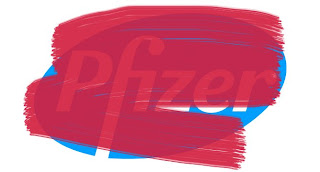
Wikileaks and its founder, Julian Assange, have been all over the news since the release of previously confidential US embassy cables. Media pundits and academics have been debating whether the actions of Wikileaks are an expression of freedom of information, and therefore ethically justified, or could be dangerously destabilizing to international politics, and are therefore unjustified (and perhaps criminal). It is interesting that the news focus has been largely on information leaked about individual political personalities, rather than other items of potentially greater interest.
For example:
one of the cables, dated April 20th 2009, contains the following interesting tidbit. According to Enrico Liggeri, Country Manager for Pfizer, his pharmaceutical company was not happy about the prospect of defending itself in Nigeria's federal court in relation to the
infamous Trovan study. Pfizer had already agreed to pay out a settlement of $75 million to the state of Kano in relation to the case. In an attempt to squash federal lawsuits, Pfizer (according to Liggeri) hired investigators to uncover corruption links to the Nigerian Federal Attorney Michael Aondoakaa. The strategy apparently was: gather dirt on Aondoakaa, pass this on to local newspapers, and then have Aondoakaa's cronies put pressure on him to stop the lawsuit in order to stifle the negative press. Those negative items did go into the Nigerian press, and soon enough Aondoakaa found himself
suddenly and inexplicably demoted.
Liggeri goes on to say that it is imperative for Pfizer to control the fallout from the Trovan study and clean up its public image, because Nigeria is considered to be a major growth market for Pfizer's products. In the cable, Liggeri also expresses concerns about how to pay out the $75 million to the state of Kano: Nigerian representatives want the money in the form of lump sum checks, and Pfizer is worried about 'potential transparency issues.' In other words: that might be unethical. It is hard not to laugh.
Now that the cable is out, Pfizer
denies its content. It released a statement last Thursday that said: "Although Pfizer has not seen any documents from the US Embassy in Nigeria regarding the federal government cases, any notion that the Company hired investigators in connection to the former Attorney is preposterous." To translate into plain English: we haven't looked into the facts, but they can't be true.
Perhaps this is why the latest round of leaked diplomatic cables is creating a bigger stink than the earlier ones about Iraq: these ones also contain information about how business corporations actually operate, and how governments, despite having intimate knowledge of their darker activities, does nothing or provides cover. Say what you will, but ordinary news agencies (themselves often beholden to corporate entities) do not get this sort of information out.
Labels: ethics, Nigeria, Pfizer




